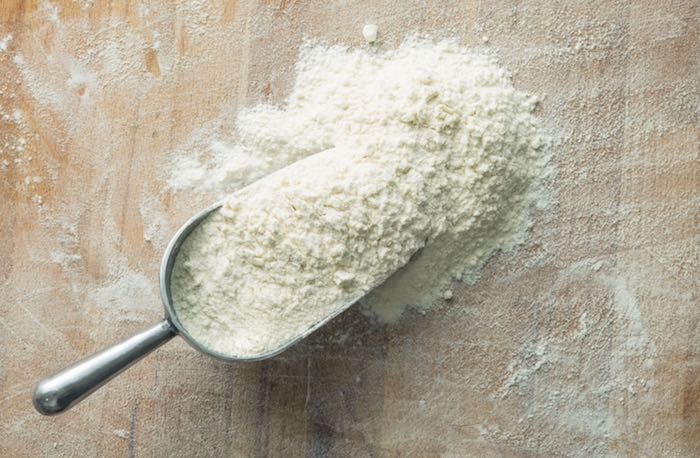A spate of recent flour recalls is highlighting a food safety issue that isn’t well-known: E. coli in flour. Most people have heard how Salmonella in eggs can make eating cookie dough or cake batter a recipe for illness, but many have not heard that E.coli in flour is a thing. And that’s another good reason to avoid eating dough and batter.
How Does Flour Become Contaminated?
Flour can become contaminated with foodborne bacteria such as E. coli and Salmonella during processing or while the wheat, or other grain, is growing in the field. Only cooking food to temperatures of 160˚ F and 165˚ F respectively can kill these pathogens. So, eating dough or batter poses a food safety risk from flour and, if the batter or dough contains eggs that aren’t pasteurized, a Salmonella risk.

E. coli Outbreak Linked to Flour Made with ADM Milling Wheat
An E.coli outbreak linked to ADM Milling Co. flour has sickened 17 people in eight states who said they became ill after eating dough or tasting batter. Two of them recalled that the dough or batter they ate was made with flour or baking mixes purchased at ALDI. When health officials tested that flour at a bakery where one of the case-patients tasted the dough, results showed it was positive for the outbreak strain of E. coli.
The flour, Baker’s Corner brand, was made with contaminated wheat produced by ADM Milling Co.’s facility in Buffalo, NY. It was recalled and the outbreak was announced on May 24, 2019.
Then, a few days ago, two more flours made at ADM’s Buffalo facility were recalled: King Arthur brand flour and Pillsbury Best Bread flour. Both of those companies said that no illnesses were linked to the flours at the time the recalls were issued.
Salmonella Outbreak, Duncan Hines Cake Mix Recall
In 2018, a Salmonella outbreak that triggered a recall of Duncan Hines cake mixes sickened seven people in five states. Maryland and Ohio each reported two cases. Florida, Missouri and Wisconsin each reported one. ConAgra Brands issued a recall four varieties of Duncan Hines cake mix on November 5, 2018, after Oregon health officials tested a box of Duncan Hines Classic White Cake Mix and found Salmonella Agbeni.
Gold Medal Flour E. coli Outbreak
In 2016, Gold Medal flour was linked to an E. coli O26 and O121 outbreak that sickened 63 people from 24 states. Health officials determined that flour produced at a General Mills facility in Kansas City, Missouri was the likely source of this outbreak. Many recalls, recall expansions, and secondary recalls were announced as the investigation proceeded.
Pizza Ranch E. coli Outbreak
Dough at Pizza Ranch restaurants was linked to a dough E. coli outbreak in 2016. Pritzker Hageman filed the first lawsuit in connection with that outbreak. Our team represented the family of a 7-year-old girl from Kansas who got sick after eating at a Pizza Ranch restaurant.
Symptoms of E. coli
Symptoms of an E. coli infection include abdominal cramps and diarrhea that is sometimes watery or bloody. Teenagers and young children with E. coli infections are at risk for developing a life-threatening complication called hemolytic uremic syndrome (HUS), a form of kidney failure.
If you have an E. coli infection from contaminated flour and would like to talk with our award-winning team of E. coli lawyers, call us toll-free at 1(888) 377-8900, use the form below or send a text to 612-261-0856. The consultation is free and there is no obligation.
